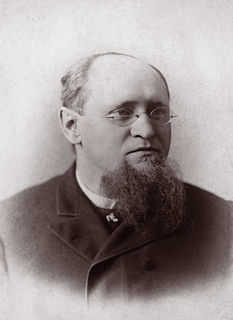 W
WRudolf Gottfried Arndt was a German psychiatrist from Bialken, district of Marienwerder.
 W
WBernhard III, Duke of Saxe-Meiningen, was the last reigning duke of Saxe-Meiningen.
 W
WFriedrich Adam Julius von Bernhardi was a Prussian general and military historian. He was a best-selling author prior to World War I. A militarist, he is perhaps best known for his bellicose book Deutschland und der Nächste Krieg, printed in 1911. Describing war as a "divine business", he proposed that Germany should pursue an aggressive stance and ignore treaties.
 W
WHans Hartwig von Beseler was a German colonel general.
 W
WCount Wilhelm von Bismarck-Schönhausen was a German counselor, civil servant and politician, who served as a member of the Reichstag from 1880 to 1881 and president of the Regency of Hanover from 1889 to 1890. The youngest son of Otto von Bismarck, he and his brother Herbert von Bismarck both resigned their posts after the elder Bismarck was dismissed as Chancellor of Germany in 1890. Wilhelm subsequently accepted an appointment as Governor of East Prussia in 1894. Mount Wilhelm is the highest mountain in Papua New Guinea at 4,509 metres, part of the Bismarck Range, was named after him by Hugo Zöller.
 W
WMoritz Ferdinand Freiherr von Bissing was a Prussian General.
 W
WMax von Bock und Polach was a Prussian officer and Field Marshal. He served in the military during the three wars of German unification under the leadership of Prime Minister Otto von Bismarck.
 W
WKarl Wilhelm Paul von Bülow was a German field marshal commanding the German 2nd Army during World War I from 1914 to 1915.
 W
WMartin Friedrich Rudolf von Delbrück was a Prussian statesman at the time of Otto von Bismarck.
 W
WKarl Ludwig d'Elsa was a Royal Saxon army officer who was a Generaloberst in the First World War and awarded the Pour le Mérite.
 W
WKarl Wilhelm Georg August von Einem genannt von Rothmaler was the commander of the German 3rd Army during the First World War and served as the Prussian Minister of War responsible for much of the German military buildup prior to the outbreak of the war.
 W
WAlbert Theodor Otto Emmich was a Prussian general.
 W
WBotho Wendt August Graf zu Eulenburg was a Prussian statesman.
 W
WLudwig Alexander Friedrich August Philipp Freiherr von Falkenhausen was a German Generaloberst most notable for his activities during World War I.
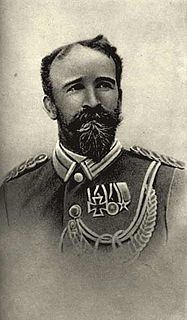 W
WCurt Karl Bruno von François was a German geographer, cartographer, Schutztruppe officer and commissioner of the imperial colonial army of the German Empire, particularly in German South West Africa where he was responsible on behalf of Kaiser for the foundation of the city of Windhoek on 18 October 1890 and the harbor of Swakopmund on 4 August 1892.
 W
WFrederick Francis III was the penultimate Grand Duke of Mecklenburg-Schwerin.
 W
WHans Emil Alexander Gaede was a Prussian officer, and later General of Infantry during World War I.
 W
WGeorg Freiherr von Gayl was a Prussian officer, and General during World War I. Also, he was a recipient of Pour le Mérite.
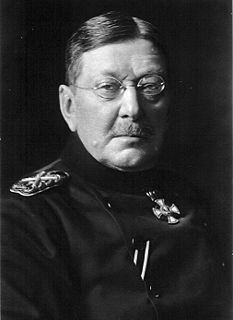 W
WWilhelm Leopold Colmar Freiherr von der Goltz, also known as Goltz Pasha, was a Prussian Field Marshal and military writer.
 W
WJohann Karl Hermann Gronau, from 1913 von Gronau, commonly known as Hans von Gronau was a Prussian officer, and General during World War I.
 W
WMelchior Hubert Paul Gustav Graf von Hatzfeldt zu Wildenburg was a German diplomat who served as envoy to Spain and Ottoman Empire, foreign secretary and head of the Foreign Office. He also as ambassador to United Kingdom in 1885 to 1901. He is best known for signing the Yangtze Agreement in 1900 and was once described by Otto von Bismarck as das beste Pferd im diplomatischen Stall.
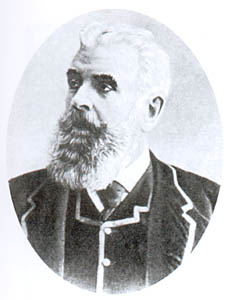 W
WGuido Georg Friedrich Erdmann Heinrich Adalbert Graf Henckel von Donnersmarck, from 1901 Prince (Fürst) Henckel von Donnersmarck was a German nobleman, industrial magnate, member of the House Henckel von Donnersmarck and one of the richest men of his time. He was married in his first marriage to the famed French courtesan Esther Lachmann, known as La Païva, of Russian Jewish origin.
 W
WPaul Ludwig Hans Anton von Beneckendorff und von Hindenburg ; abbreviated ; was a German general and statesman who led the Imperial German Army during World War I and later became President of Germany from 1925 until his death in 1934. During his presidency, he played a key role in the Nazi seizure of power in January 1933 when, under pressure from advisers, he appointed Adolf Hitler as Chancellor of Germany.
 W
WFriedrich Wilhelm Eugen Karl Hugo Prince of Hohenlohe-Öhringen, Duke of Ujest was a German nobleman, politician, mining industrialist and general in the armies of the kingdom of Württemberg and the kingdom of Prussia.
 W
WGustav Emil Bernhard Bodo von Kessel was a German general who served in the Austro-Prussian War, the Franco-Prussian War and World War I.
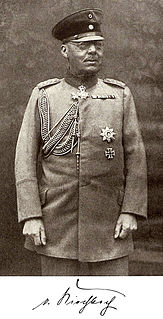 W
WRudolph Bodo Hans von Kirchbach was a Royal Saxon army officer who was a Generaloberst in the First World War and awarded the Pour le Mérite.
 W
WAlexander Heinrich Rudolph von Kluck was a German general during World War I.
 W
WErnst Wilhelm Eduard von Knorr was a German admiral of the Kaiserliche Marine who helped establish the German colonial empire.
 W
WAlexander Adolf August Karl von Linsingen was a German general during World War I.
 W
WMoriz Freiherr von Lyncker was a Prussian officer of the German Empire and Chief of the Military Cabinet of Emperor Wilhelm II.
 W
WHelmuth Ludwig Wilhelm Freiherr von Maltzahn was a German finance minister and a representative in the Reichstag.
 W
WSurgeon General William George Nicholas Manley, was a British Army officer, surgeon and a recipient of the Victoria Cross, the highest award for gallantry in the face of the enemy that can be awarded to British and Commonwealth forces. He received awards from several other countries, and is the only person to have been awarded both the VC and the Iron Cross.
 W
WDuke Maximilian Emanuel in Bavaria was a German prince of the House of Wittelsbach, and a brother of Elisabeth of Bavaria, Empress of Austria and Queen of Hungary.
 W
WGraf Helmuth Johannes Ludwig von Moltke, also known as Moltke the Younger, was a German general and Chief of the Great German General Staff. He was also the nephew of Generalfeldmarschall Helmuth Karl Bernhard von Moltke who is commonly called "Moltke the Elder" to differentiate the two.
 W
WKarl Bruno Julius Mudra, from 1913 von Mudra was a Prussian officer, and later General of Infantry during World War I. He was a recipient of Pour le Mérite with Oak Leaves. Mudra married on 12 October 1886 in Rheydt Paula Schött, daughter of Hermann Schött and Sofie Wilhelmine Jansen. They had two children:Herbert Emil Bruno (1887–1945), Colonel Edith (1892–1942).
 W
WCurt Adolph Netto was a German metallurgist and educator. He is regarded as a precursor for the industrial utilization of aluminium. He was active in early Meiji period Japan.
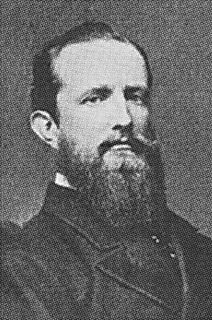 W
WPrince Nikolaus Wilhelm of Nassau, was the only son of William, Duke of Nassau by his second wife Princess Pauline of Württemberg.
 W
WHugo Moritz Anton Heinrich Freiherr von Obernitz was a Prussian general who served as adjutant general of Kaiser Wilhelm I.
 W
WOtto was King of Bavaria from 1886 until 1913. However, he never actively ruled because of alleged severe mental illness. His uncle, Luitpold, and his cousin, Ludwig, served as regents. Ludwig deposed him in 1913, a day after the legislature passed a law allowing him to do so, and became king in his own right.
 W
WAlfred Leopold Robert Moritz Pelldram was a German diplomat who served as the Consul-General for Australia, Resident Minister to Haiti and Minister to Venezuela.
 W
WEduard von Pestel was a Prussian generalleutnant. He is best known for his defense of Saarbrücken and Sankt Johann before and during the Battle of Saarbrücken on 2 August 1870, the first major engagement of the Franco-Prussian War. Regarded as a war hero by the local population, he was made an honorary citizen of Saarbrücken and Sankt Johann.
 W
WHans Georg Hermann von Plessen was a Prussian Colonel General and Canon of Brandenburg who held the honorary rank of Generalfeldmarschall in his role as Commandant of the German General Staff during World War I.
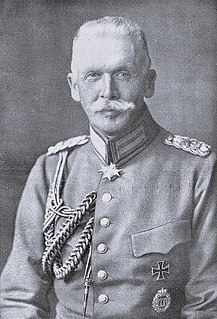 W
WKarl Freiherr von Plettenberg was a Prussian officer, and later General of Infantry during World War I. He was Commandant-General of the Guards Corps, Adjutant General of the German Kaiser Wilhelm II and a recipient of Pour le Mérite.
 W
WAlexander Ferdinand Ludolf von Quast was a Prussian military officer, participant in the Franco-Prussian War and a general in the First World War. He commanded the German 6th Army during the Battle of the Lys of the Spring Offensive in 1918.
 W
WPrince Antoni Wilhelm Radziwiłł was a member of the Polish-Lithuanian nobility and a General of the Artillery in the Prussian Army. He was the nephew of Princess Elisa Radziwiłł, the first love of their kinsman King William I of Prussia, who would later become the first German Emperor.
 W
WOswald Samuel Konstantin Freiherr von Richthofen, a German diplomat and politician, served as Foreign Secretary and head of the Foreign Office from 23 October 1900 to 17 January 1906.
 W
WAlexander Siemens was a German electrical engineer.
 W
WFriedrich Bertram Sixt von Armin was a German general who participated in the Franco-Prussian War and the First World War. In the latter he participated in many battles on the Western Front, including the Battles of Passchendaele and the Lys.
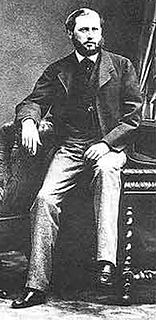 W
WOtto Graf zu Stolberg-Wernigerode was an Imperial German politician and the vice-chancellor of the German Empire.
 W
WHermann Christian Wilhelm von Strantz was a Prussian officer, and later General of Infantry during World War I. He was a recipient of Pour le Mérite.
 W
WGeneral Adrian Dietrich Lothar von Trotha was a German military commander during the European new colonial era. As a brigade commander of the East Asian Expedition Corps, he was involved in suppressing the Boxer Rebellion in Qing China, commanding troops which made up the German contribution to the Eight-Nation Alliance. He later served as governor of German South West Africa and Commander in Chief of its colonial forces, in which role he suppressed a native rebellion during the Herero Wars. He was widely condemned for his brutality in the Herero Wars, particularly for his role in the genocide that led to the near-extermination of the Herero.
 W
WCount Ferdinand von Zeppelin was a German general and later inventor of the Zeppelin rigid airships, founding the company Luftschiffbau Zeppelin.
 W
WAugust Ludwig Traugott Botho Graf zu Eulenburg was an officer in the Prussian, and later German armies, and official in the Prussian royal court. He was the younger brother of Count Botho zu Eulenburg, who served as Minister-President of Prussia from 1892 to 1894, and a second cousin of Philipp, Prince of Eulenburg-Hertefeld, the close friend of Kaiser Wilhelm II.